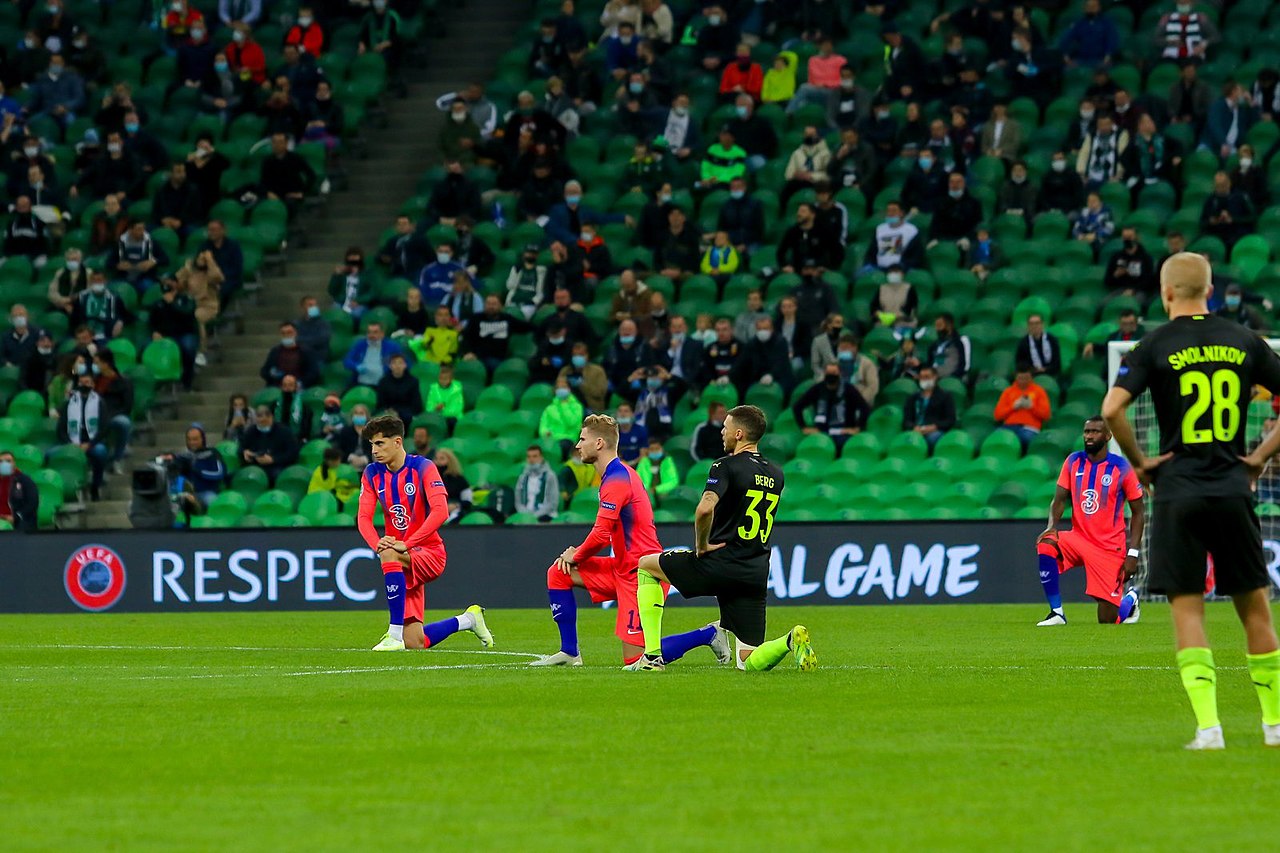The concerning rise of racial discrimination in football
It was a sombre evening for football and its community in England on 11 July 2021. Three young talented English players failed to hit the ball in the net during a nail-biting penalty shoot resulting in Italy winning the Euros. It was the same old story for England; memories of Gareth Southgate’s miss in Euros 96 came flooding back. Both occasions were devastating for everyone, but in 2021, the fans’ reaction was darker and more sinister.
11 arrests were made based on hatred communication towards the penalty takers online as well as an astonishing 600 reports were sent to the UK Football Policing Unit which were related to online racial abuse.
The constant discussion and debates surrounding illegal immigration are finding their way into football
As a country we felt united throughout the tournament, hoping that the young squad could finally get over the line. When the Italian goalkeeper saved that last penalty, the sense of unity crumbled, and an unpleasant situation surfaced.
Just in the last year, there have been a number of high-profile cases relating to discrimination towards footballers. During the summer, the Lionesses battled valiantly retain their crown as European champions; England progressed through the tournament in exhilarating fashion. However, their victory was clouded by England full-back, Jess Carter, experiencing online racism for her performances, causing the player to come off social media. The atmosphere should have been exciting and vibrant, but the topic of racism painted the narrative.
Many fans don’t feel empowered to take action when they witness discrimination; according to ‘Kick it Out’ and ‘Forza Football’
Another incident occurred on the opening night of the Premier League season where Bournemouth winger, Antoine Semenyo was racially abused by a Liverpool fan. Despite being highly praised after the game for his outstanding performance on high profile shows such as Match of the Day, his performance like Jess Carter’s and the Lionesses was somewhat over-shadowed by discussions and coverage of the abuse he received by a single fan.
The fragile political climate of England and the constant discussion and debates surrounding illegal immigration have found their way into football in the last year. The organisation ‘Kick it Out’ have reported that they ‘have seen a rise in reports of discrimination since the summer’ and many incidents of chanting from crowds regarding race and immigration. Going to the football should be a fun, entertaining escape where people can enjoy the game with the only anxiety being the end result.
But then within the stands, fans have a collective responsibility to take on racism by reporting cases ourselves and contributing to the fight. Many fans, however, don’t feel empowered to take action when they witness discrimination; according to ‘Kick it Out’ and ‘Forza Football’, only a staggering 28% of fans know how to report acts of discrimination clearly indicating that fans need greater awareness and knowledge of how to speak up.
Furthermore, existing methods to stand up for discrimination are not working either. Taking the knee was a symbolic act deployed by players to display a united front against racism. But after Jess Carter received her racist abuse online, the Lionesses announced that they would not take part in the statement as they felt, ‘it was clear we and football need to find another way to tackle racism’ evidently showing that the players believe greater action is needed.
Alternative and more effective methods need to be installed to end the fight. Kick it Out have recently announced a five-year-plan to defeat racism; new goals to make football a safer and more inclusive environment for everyone, from grassroots level to the Premier League. Five years feels far too long… but let’s hope we can hit the back of the net tackling racism rather than continuing to miss the target.

Comments (1)
Excellent
“Bring It Home”